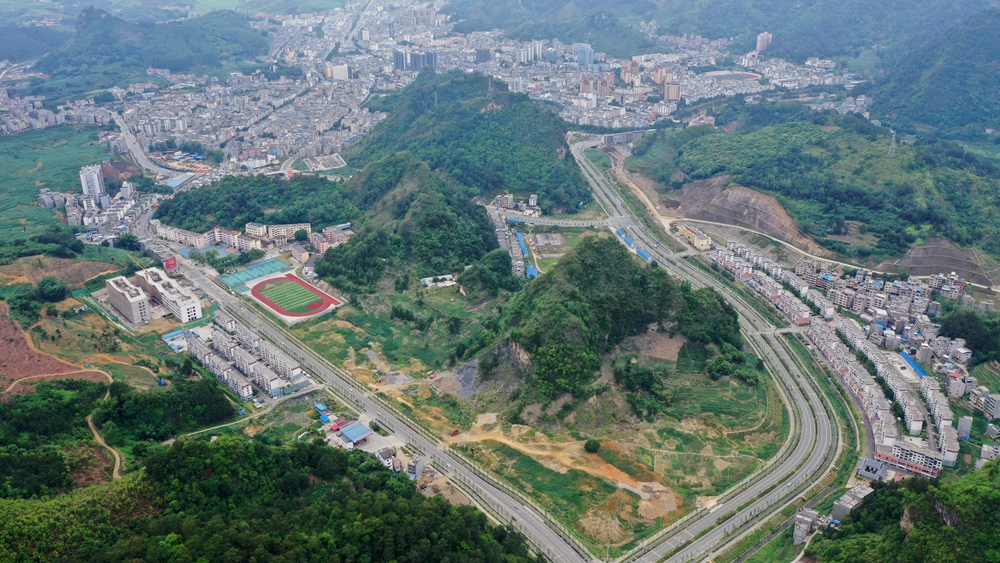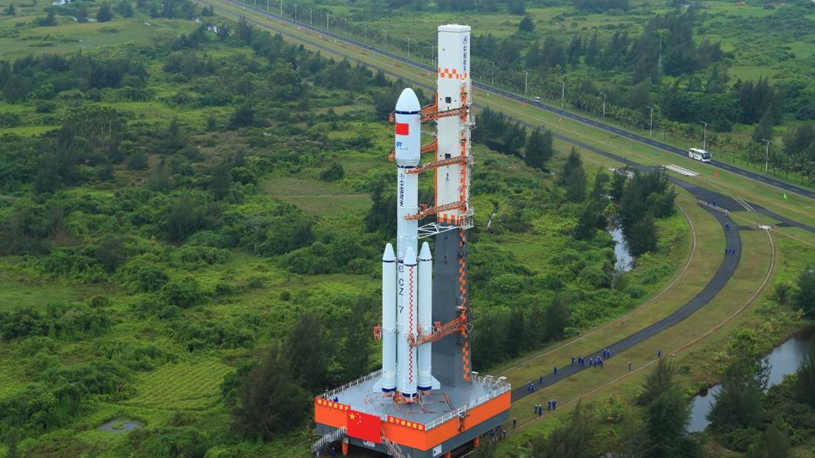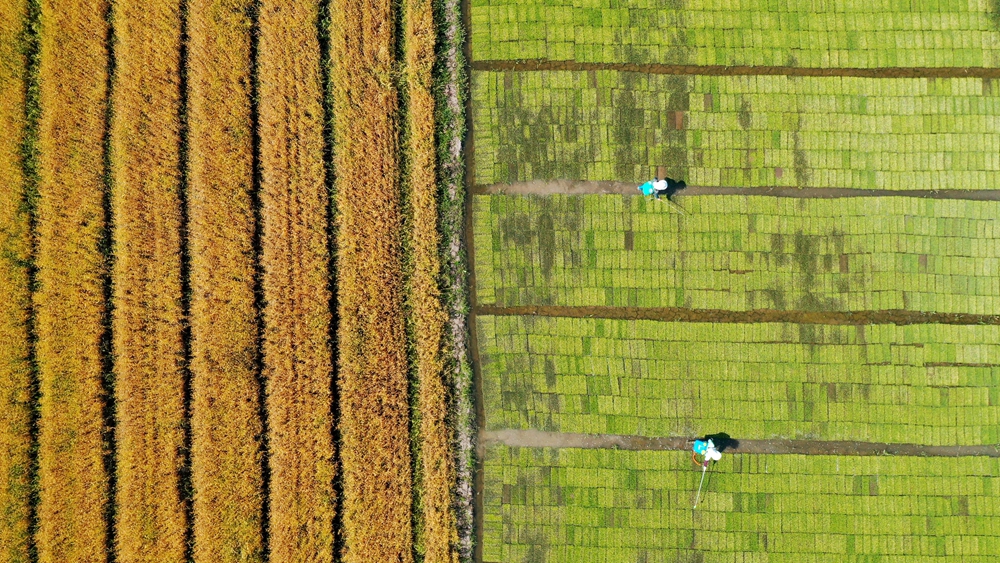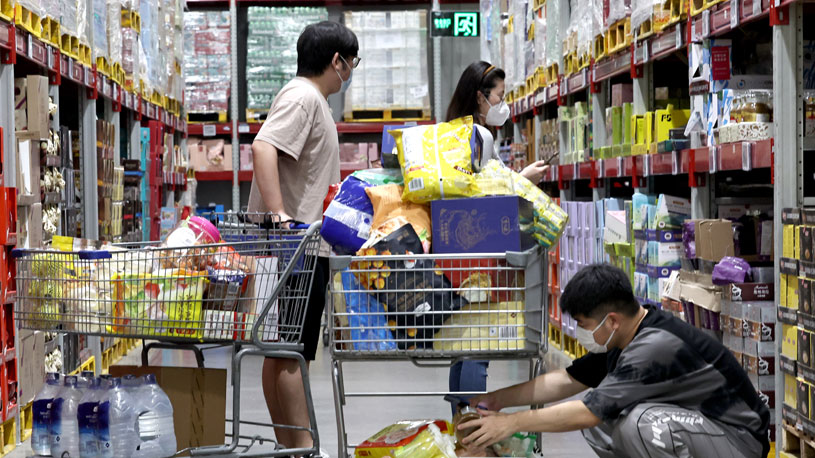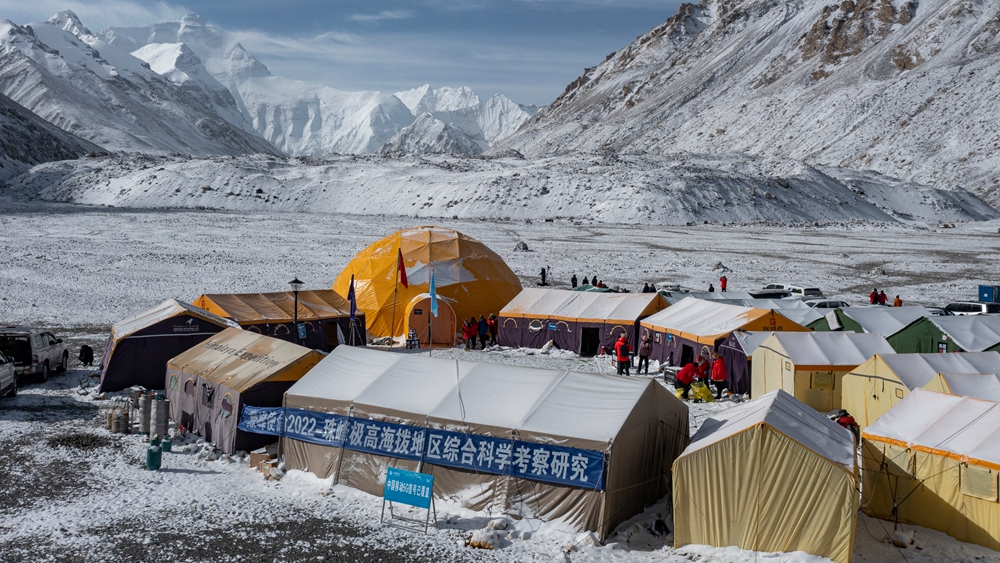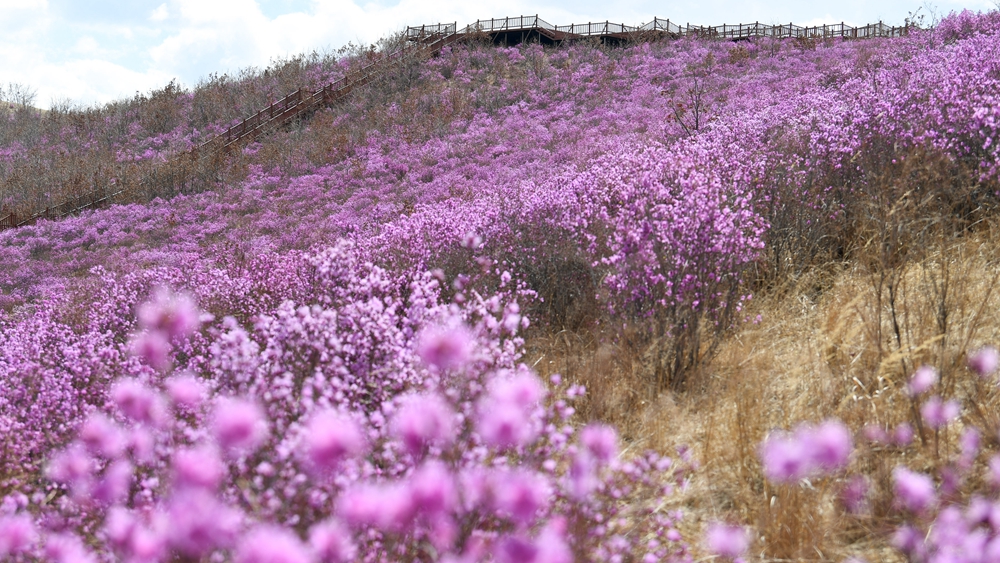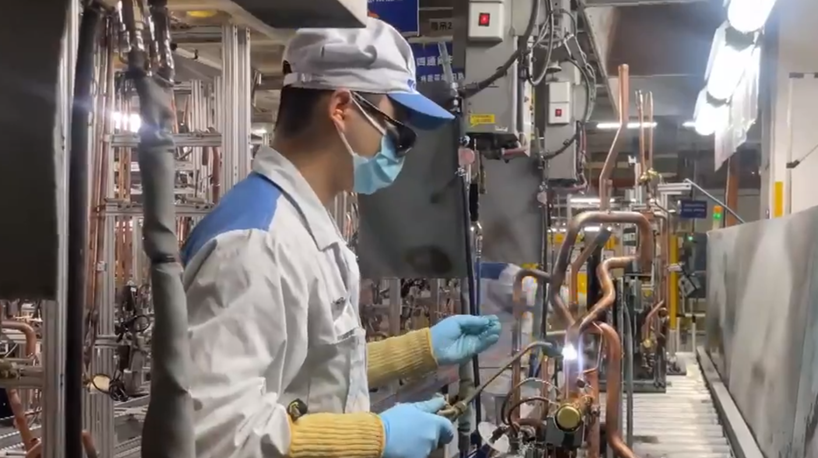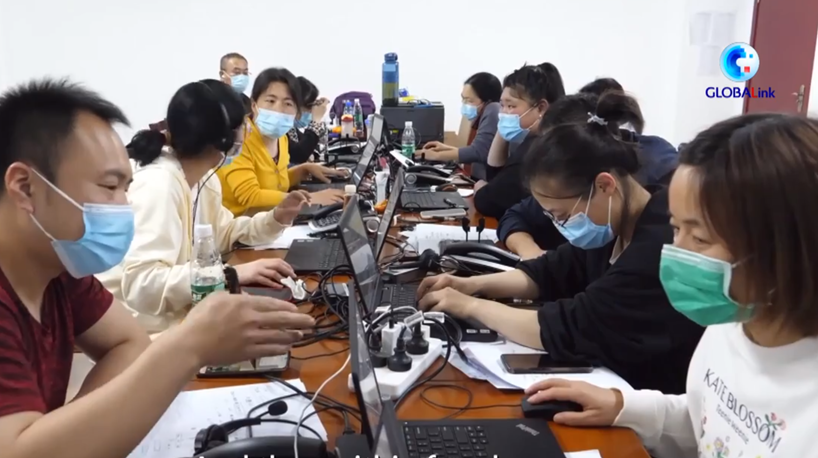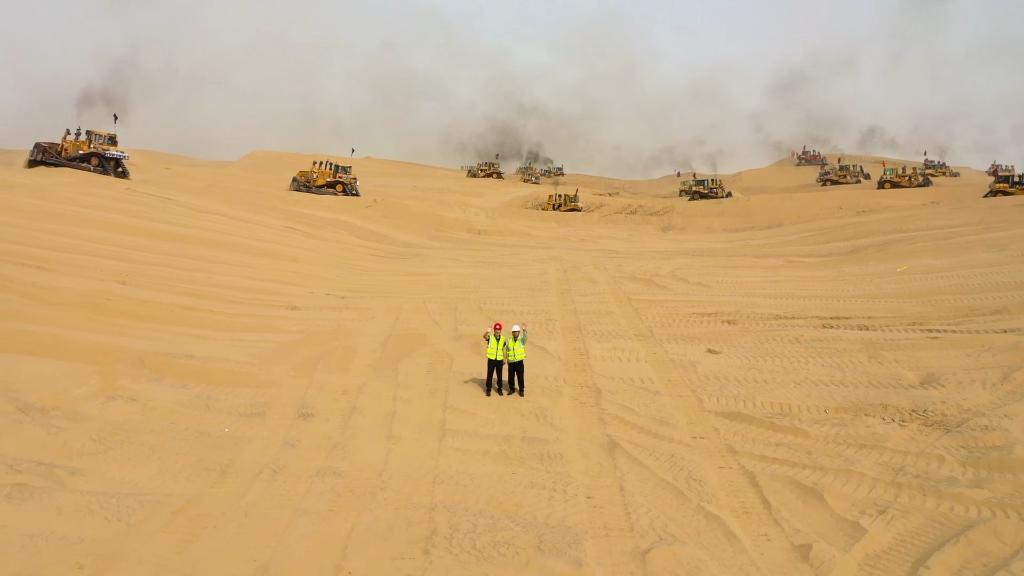
An egret is seen at Fenhe river wetland park in Taiyuan, north China's Shanxi Province, Dec. 28, 2021. (Xinhua/Yang Chenguang)
TAIYUAN, May 12 (Xinhua) -- Imagine groups of people laying down mats and tents in the shade while enjoying spring scenery surrounded by green grass and flowing water. This may sound like a secluded scene in the wild, but this tranquil environment is actually in an urban area.
Qiu Yu had never thought about camping in the park near Fenhe River, about 10 km north of downtown Taiyuan City, the capital of north China's Shanxi Province.
"Couple of years ago, there was nothing but the river and wild trees, and almost no one would like to come," said the 36-year-old camping-lover.
The change occurred in October 2021 when the ecological restoration project of the 43-km-long Taiyuan section of the Fenhe River was completed, providing a leisure space for citizens to get close to nature.
The Loess Plateau in Shanxi is the largest loess area in the world. In the past, the area was known for its ecological fragility and soil erosion. As a heavy industry base, Taiyuan suffered from heavy air and water pollution.
Since the beginning of this century, a drive for green and sustainable development has swept China, and ecological restoration projects have been carried out in the Fenhe River valley and many other places on the Loess Plateau.
This green transformation has not only given residents more choices for leisure and entertainment but has also been the bread and butter for many.
Lyu Fuqin planted over 1.3 hectares of scholar trees and apricot trees in the past month.
"I used to cut trees to cook and make fire, but now I plant them," said the 52-year-old living in Linxian County, Lyuliang City. He is now a forester, and bid farewell to his former life as an ordinary farmer who struggled to make ends meet.
As a former poverty-stricken area, 91 percent of the land area in Lyuliang City is hilly and mountainous. In the past few years, the city has combined afforestation and poverty alleviation, which has not only significantly improved the environment but also helped a group of poor households increase their incomes.
"As a forest planter, I now earn more than 40,000 yuan (about 5,944 U.S. dollars) yearly," Lyu said, adding that he had built a two-story house, and funded a wedding for his youngest son.
Over the past few years, nearly 100,000 people have participated in the afforestation projects in Lyuliang, including 65,000 former poor households, and their annual per capita income has increased by about 5,000 yuan, the official data showed.
Moreover, the project has elevated the forest coverage rate in the city to 28.6 percent by the end of 2021.
The stereotype of the Loess Plateau as an arid and lifeless place is quietly changing. According to official statistics, the average precipitation in Lyuliang has increased by 81.8 mm annually from 2016 to 2020, and the amount of sediment flowing into the Yellow River has reduced by more than 7 million tonnes.
By constructing terraced fields on hillsides to develop agriculture in the 1960s and 1970s, Dazhai Village in Xiyang County was famous worldwide. About 10 million domestic and international visitors have visited the area.
However, the villagers have stopped building terraced fields, and started to return farmland to forests and developing ecotourism.
The former agricultural pace-setter, which once built more than 53 hectares of terraced fields, has returned about 20 hectares of arable land to forests at present.
"I prefer working here rather than in big cities," said 31-year-old native Li Zhenjiang, who used to work in Beijing. He finally settled in the village by running two souvenir shops, earning more than 100,000 yuan a year.
Through the development of ecotourism, the collective income of Dazhai reached 23 million yuan in 2020, and the annual per capita income has reached 26,000 yuan.
"Why should I go out to make a living, when I can make money on my doorstep? As the environment gets better, the village will become more prosperous in the future," said Li. ■

